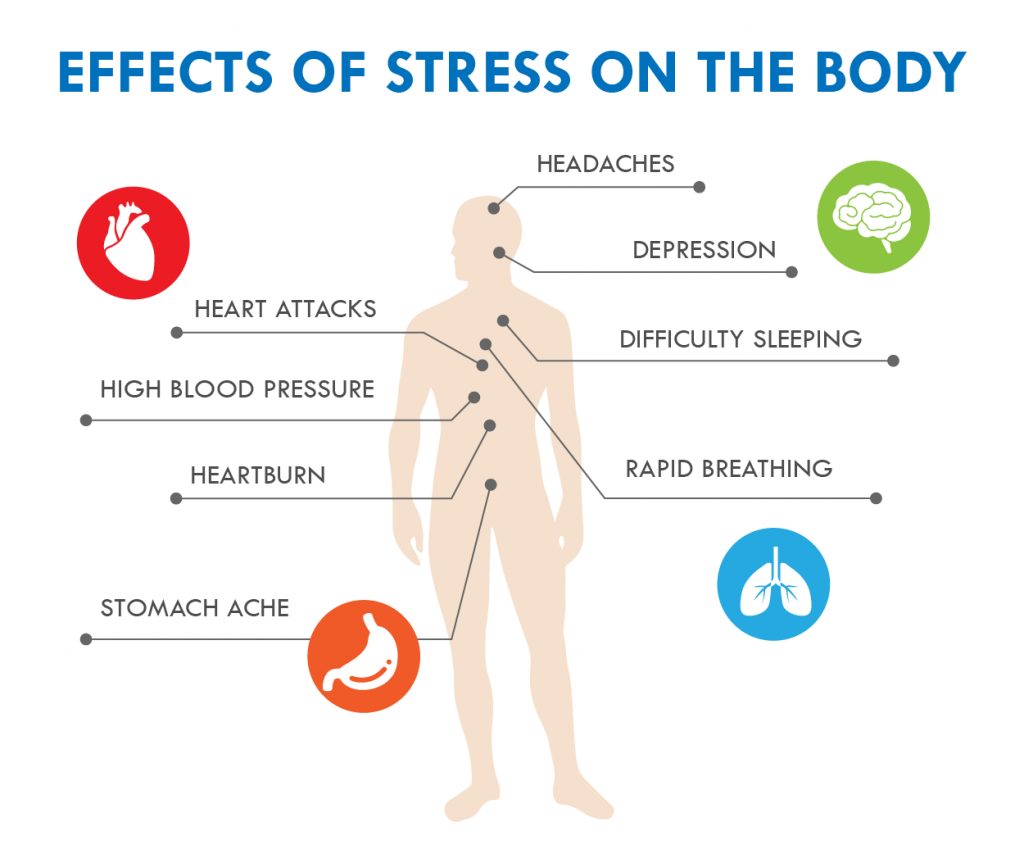STRESS – just seeing the word can cause anxiety for some people. Stress can be defined as a state of mental or emotional strain or tension resulting from adverse or demanding circumstances. It can also be defined as the non-specific response of the body to any demand of change. This means that there is such a thing as good stress and bad stress. Good stressors are things that cause us to be excited or positive and tend to have a positive effect on our mood such as healthy relationships and setting and achieving goals. Bad stressors are the things that cause us to be upset, angry or worried, such as job loss or higher demands at work or in our life. Although both types of stress can lead to similar body responses, it’s the bad stressors that can cause long term damage to our body.
Long term stress can not only lead to higher blood pressure and increased risk of having a heart attack, but it affects almost every part of our body. It can decrease the amount and quality of sleep we get, leads to muscle and joint pain, headaches and even depression. The good news is there are several ways to identify negative stress and ways to reduce the impact it has on us.

Identify and Prevent
The first step is identifying the problem. Use a journal to mark down the times when stress affects you and how often those stressors occur. Once you track the times when stress hits, you can try to avoid those situations or change your reaction if you can’t prevent it. Even if you can’t stop the stress, you have control over changing the outcome. If you learn that you tend to reach for unhealthy foods in stressful situations, try exercising instead. This will turn the bad stressor into a good stressor.
Utilize Relaxation Techniques
Relaxation is a way of calming down after the stress has occurred and affected your body. Counting to 10 before reacting is a good technique that not only helps clear your mind, but can also help to lessen the effects on your body from stress. Download the incentaHEALTH app to access our guided meditation series and release some stress. Join mindfulness expert, Tom Evans, for guided meditations on stress, healthy eating, relaxation and more.
Exercise Can Be the Best Medication
Exercising has been shown to increase productivity, concentration and happiness, while reducing your risk for a number of cancers. In other words, exercising can be a great outlet for reducing stress. The increase in body temperature from exercising has a calming effect on the body. Not only that, but the feeling you get after finishing a challenging workout increases happiness and gives a sense of accomplishment which could help decrease almost any stressor.
The most important thing to remember is to have a plan when stress happens and know what techniques you have to lean on so that the effects are not long term.



